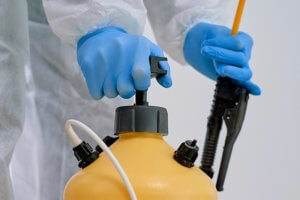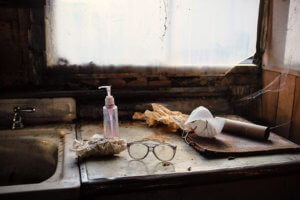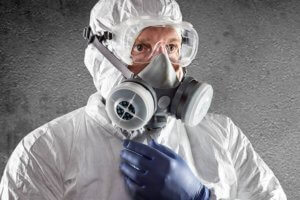BLOG

Australian Crime Scene Cleaning FAQs
If you’ve ever wondered what crime scene cleaning is like on a daily basis or would like to know when to hire a crime scene cleaner instead of just a regular cleaner, read on below for the answers to some of the most frequently asked questions about crime scene cleaning.
Who Is Responsible For Cleaning Up A Crime Scene?
In Australia, the responsibility of cleaning up a crime scene will usually fall to the owner of a property or the tenant who resides there.
After a crime has taken place and the forensic investigation is complete, the police may advise the property owner to call a forensic cleaner to assist with the task of cleaning up.
What’s The Difference Between A Crime Scene Cleaner And A Regular Cleaner?

Regular cleaners do not need specialised skills, equipment, or mental preparation before undertaking a cleaning task. Due to biohazards present at a crime scene clean up, crime scene cleaners need to know how to work in these dangerous situations while using protective equipment and specialised tools. They will also need to sanitise and disinfect the area using the correct steps and techniques in order to complete their cleaning tasks successfully.
When Can I Hire A Professional Crime Scene Cleaner?
Due to the nature of their role, you can pretty much hire a crime scene cleaner any time you need them. Because crimes can occur at any time of the day or night, crime scene cleaners will often offer around-the-clock availability and are mostly on call and available 24/7.
What Sorts Of Things Do Crime Scene Cleaners Clean?

Some examples of situations where a professional crime scene cleaner would be needed include:
- Death cleanup – unattended death, suicide, decomposed body, murder/homicide
- Blood cleanup
- Accident cleanup
- Meth lab cleanup
- Murder/homicide cleanup
- Biohazard cleanup
- Hoarding cleanup
What Kind Of Training/Experience Is Needed?
Specialised crime scene cleaners will often have to develop and gain experience in the following areas:
- Biorecovery training – crime scene cleaners need to learn how to safely handle dangerous biohazards, what specialist equipment and chemicals to use in order to clean up biohazards, and how to safely dispose of these biohazards so they no longer pose a threat to others. Forensic cleaners also need to learn how to identify contaminated areas and establish the parameters for a safe working space. The objective of crime scene cleaners is to be able to effectively clean, sanitise and disinfect contaminated areas and restore them to a safe and habitable state once more.
- Physically demanding work – A crime scene cleaning workday can vary but is generally between 7-10 hours a day. Cleaning up a crime scene can be a very physically demanding task especially when hauling around tools and equipment while wearing a hazmat suit.
- Mental toughness – crime scene cleaners need to develop psychological resilience and the ability to carry out their tasks despite being exposed to some distressing and challenging situations that would be considered difficult for most people to be exposed to.
How Do Crime Scene Cleaners Protect Themselves?

Professional crime scene cleaners have a few things in their arsenal to protect themselves with while carrying out a crime scene cleaning task. Crime scene cleaners use PPE (personal protective equipment) daily to block out harmful smells and prevent exposure to cleaning chemicals as well as dangerous biohazards like blood and bodily fluids.
Some examples of PPE (personal protective equipment) include:
- Hazmat suits
- Facemasks
- Non-porous gloves
- Chemical spill boots
- Filtered respirators
What Characteristics Should A Crime Scene Cleaner Have?
In order to be successful at undertaking some of the challenges of crime scene cleaning, a good crime scene cleaner should have the following traits and characteristics:
- Strong stomach – not only do crime scene cleaners need to have a strong disposition, but they should also have a strong stomach to be able to deal with the foul odours and challenging situations they are exposed to daily.
- Physically fit – crime scene cleaning can be difficult and gruelling work involving working in hot, dangerous environments and carrying around heavy equipment – which is why physical fitness is a must.
- Compassionate – a compassionate and caring crime scene cleaner is one that will be greatly appreciated by clients who are going through an emotionally difficult time.
- Good attention to detail – crime scene cleaners should have great attention to detail to ensure they are thorough and don’t take shortcuts with their work.
- Training & experience – a good crime scene cleaner will have at least a few years of solid experience and the necessary bio-recovery training under their belt.
Need An Experienced Crime Scene Cleaner?
If you’re looking for a compassionate and experienced biohazard and crime scene cleaner, National Trauma (NTCSC) are here to help! With over 30 years experience in crime scene cleaning, you can have peace of mind knowing that you’re in good hands.
We’re ready to assist 24/7 whenever you need us. Simply call our team and we’ll be at your doorstep to assist in next to no time.

